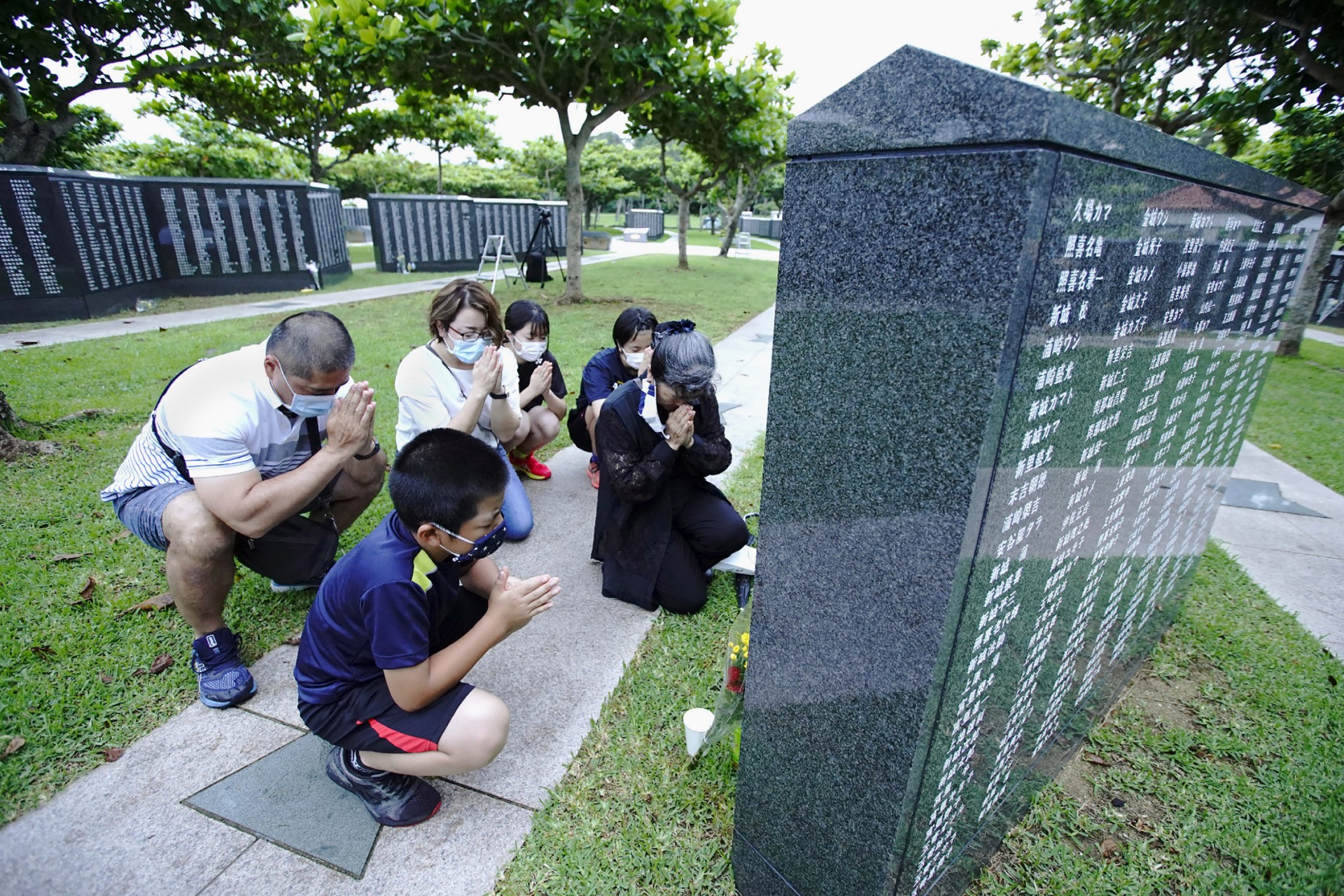The bishop of the Diocese of Naha in southern Japan challenged the prevailing notions of peace and defense, criticizing policies that prioritize national security over genuine human safety and coexistence.
In his message for the Okinawa Memorial Day on June 23, Bishop Wayne Francis Berndt warned that such policies could escalate into conflicts akin to genocide.
He stressed the differences in how peace is conceptualized and defended, questioning the ethical basis of peace maintained by force.
“The ideals of peace, coexistence, and collaboration should be a universal wish common to all, yet while aiming for the same ideals, one chooses ‘dialogue’ from a position of needing others, while another opts for ‘armed force’ under the guise of self-defense,” said Bishop Berndt.
He highlighted the risks of viewing peace solely through one’s own safety, leading to violent conflicts in other regions, ostensibly to protect domestic tranquility.
Bishop Berndt criticized the use of the term “defense,” which often justifies aggressive actions causing significant human suffering.
“The convenient term ‘defense’ obscures the fact that it is based on the sacrifice of some. The defense argument that ‘if we don’t attack, we’ll be attacked’ may seem rational but is actually a vile idea forcing hardships and death on people, especially from the perspective of those living in the battle zones,” he said.
The bishop also emphasized Okinawa’s unique standpoint, historically treated as a battleground where simplistic notions of defense such as “if you attack, you will be attacked” and “arming invites the use of armed force,” have often justified disproportionate sacrifices.
He noted the ‘policy’ of offering up Okinawa, a mere 0.6 percent of Japan’s land, to protect the vast remainder, while also pointing out the strategic militarization against potential threats like China, which turns the island into a frontline yet again.
“This militarization strategy,” Bishop Berndt argued, “does not lead to real safety as missile defenses placed in Okinawa simply turn it into a prime target, rather than deploying similar defenses in larger cities like Tokyo or Osaka.”
He stressed that such tactics treat the residents and the very land of Okinawa as expendable, undermining their intrinsic value and rights equal to any other region globally.
Bishop Berndt called for a shift toward genuine peace efforts that respect all communities and their right to live without the threat of war.
Okinawa Memorial Day, observed annually on June 23 in Japan’s Okinawa Prefecture, commemorates those lost in the Battle of Okinawa.
This day, marked to console the dead, is not recognized nationally but is deeply significant in Okinawa, where over 240,000 people perished, including local residents and children, during the only ground engagement of the Pacific War fought on Japanese soil.
Initially established in 1961 by the Government of the Ryukyu Islands during the occupation of Japan, Okinawa Memorial Day was intended to honor and pray for the relatives killed in the battle.
Although it lost its holiday status when Okinawa returned to Japan in 1972, the prefectural government reinstated it in 1991, and it is now observed similarly to national public holidays in Japan.







